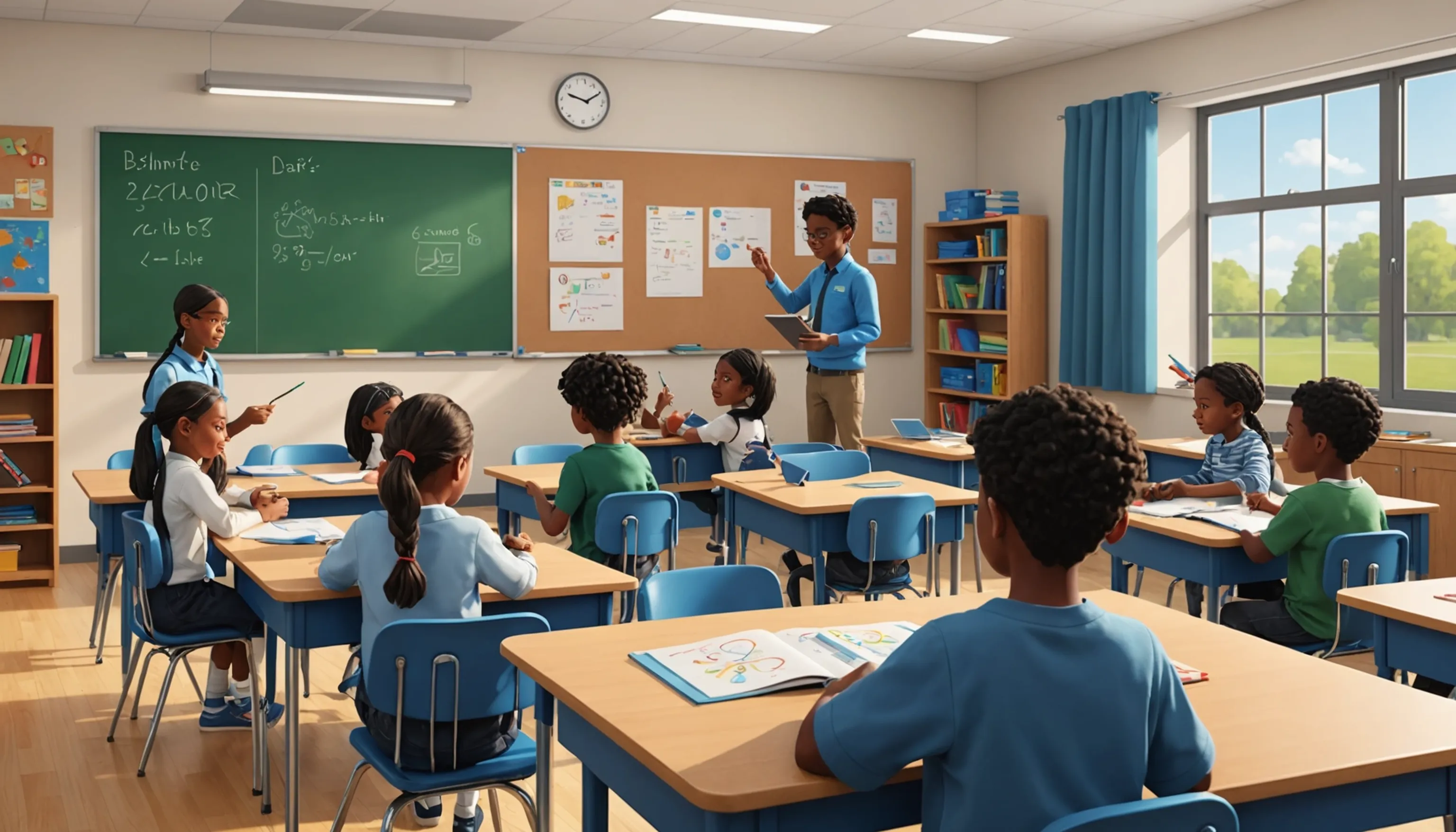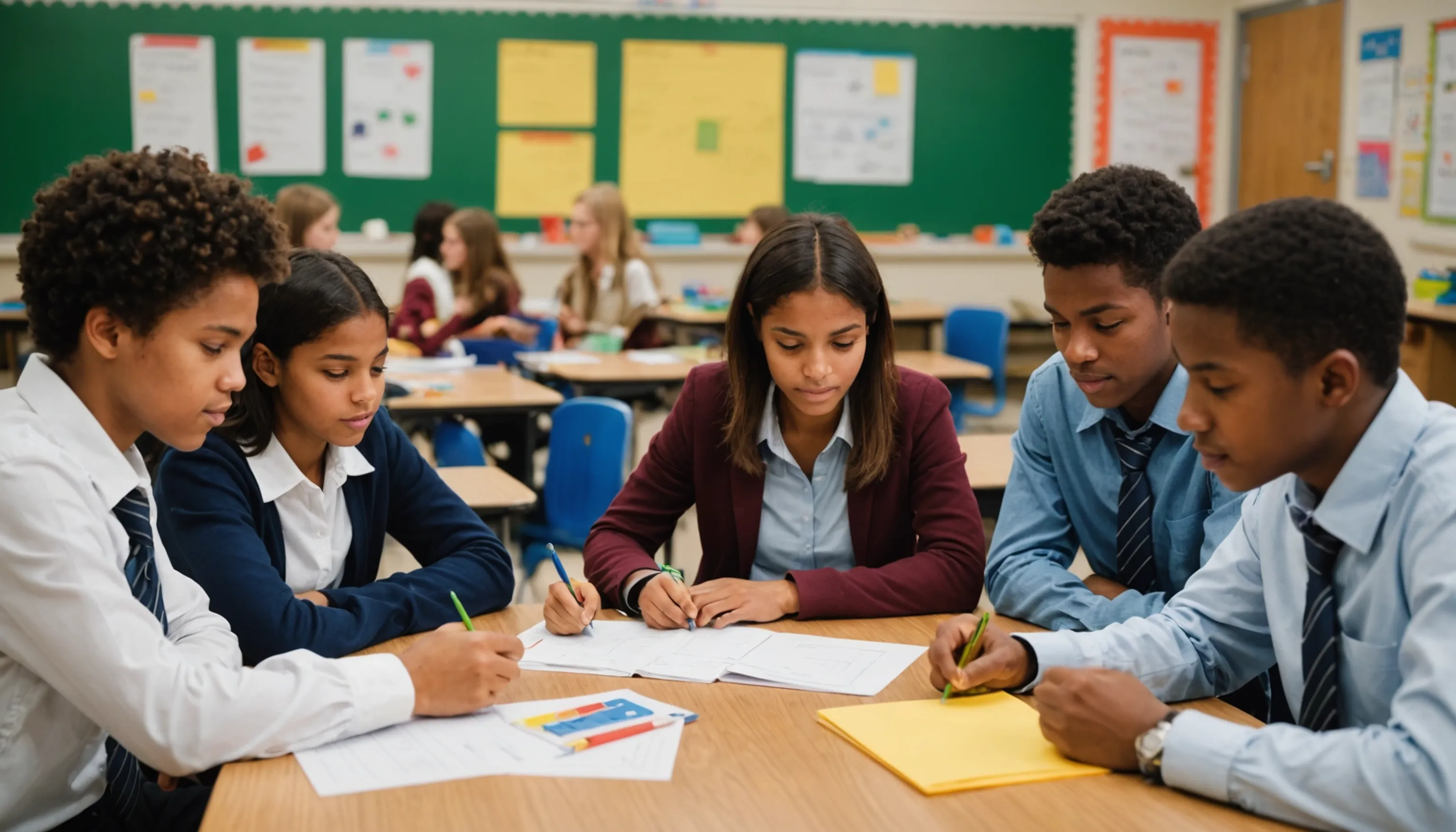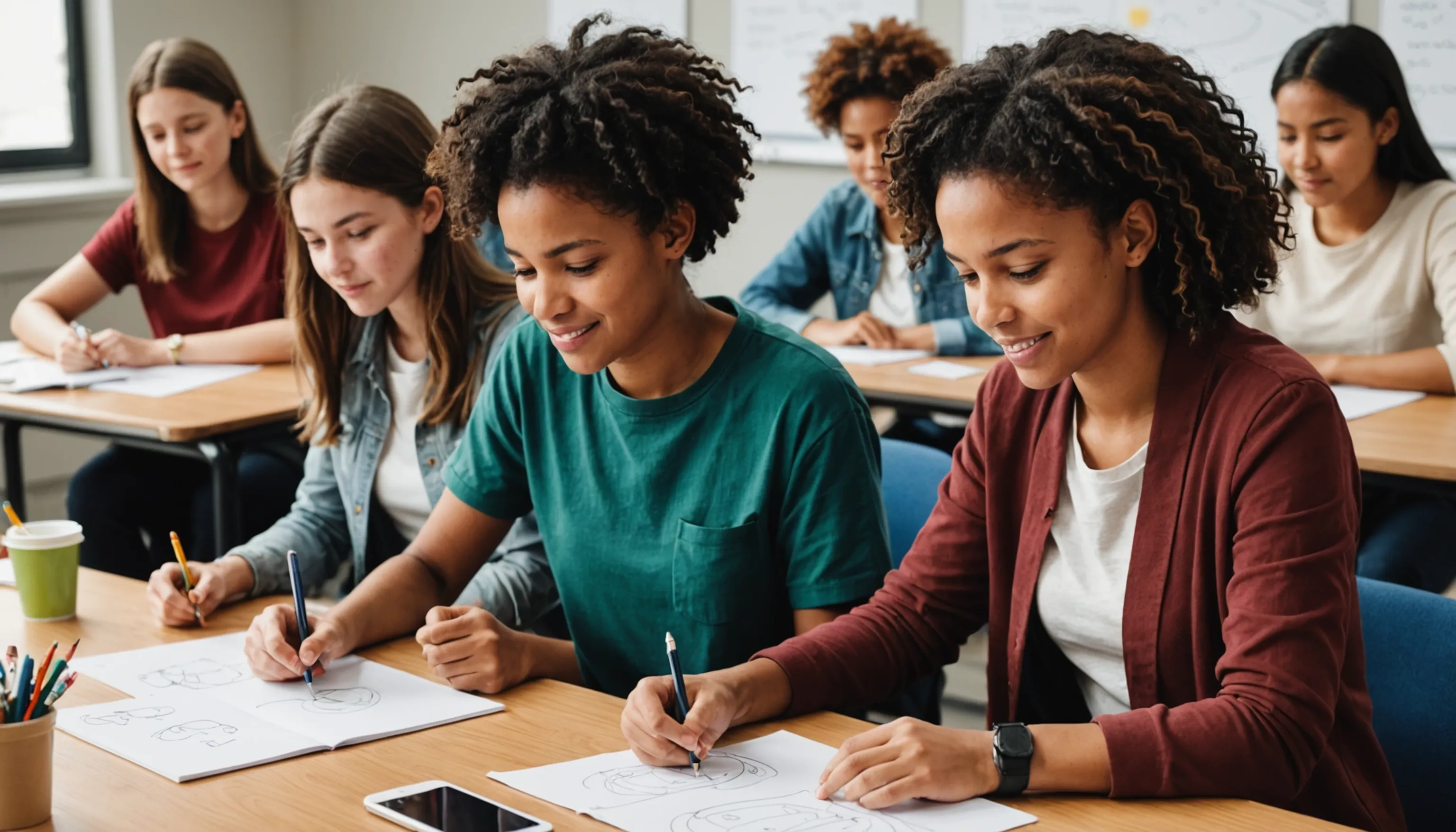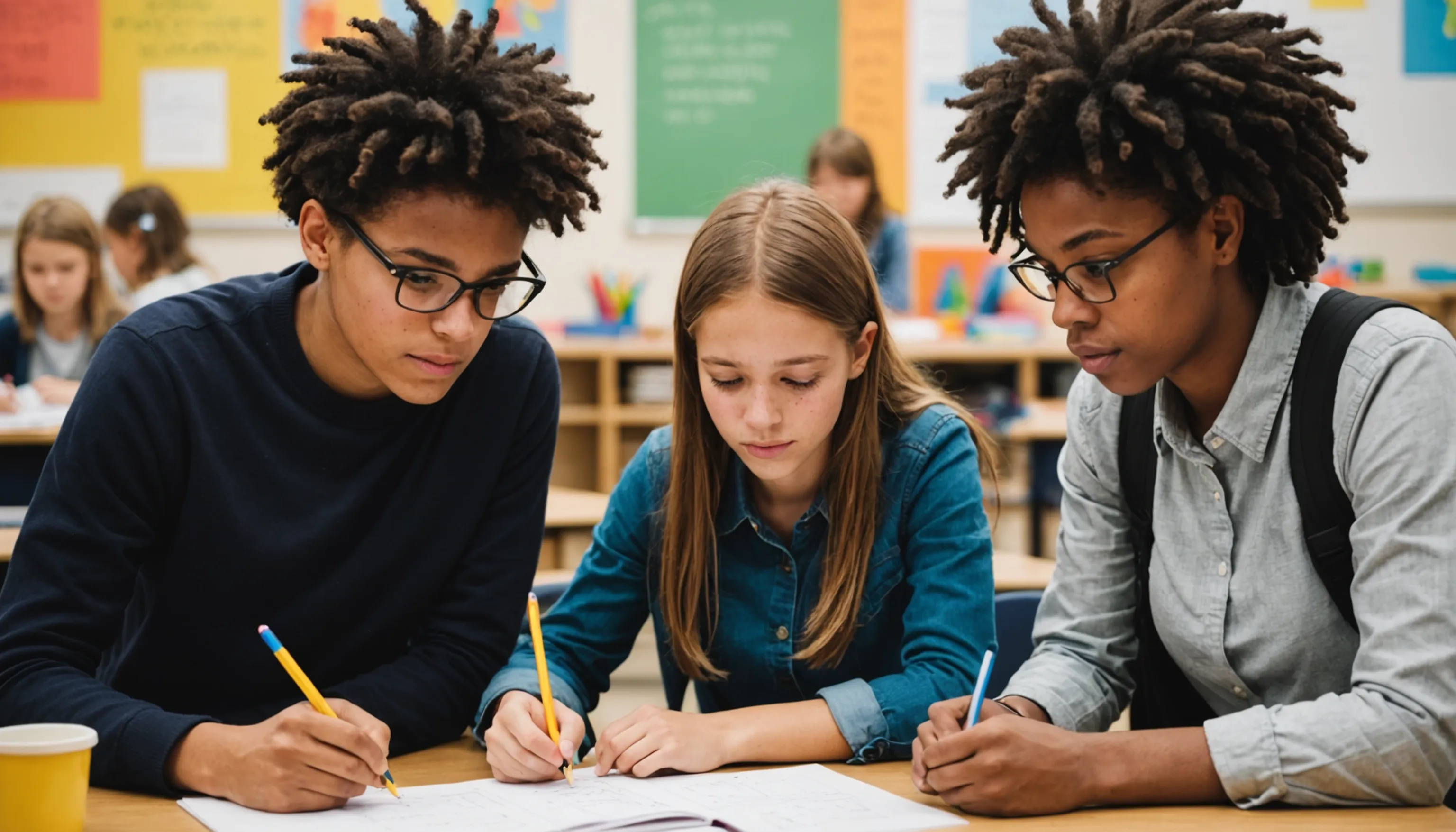Skills Needed for the Future of Education
 HvWHenry van Wagenberg
HvWHenry van Wagenberg
Essential Skills for the Future of Education
As we navigate the evolving landscape of education, certain essential skills are becoming increasingly important for students. These skills prepare them for success in a rapidly changing world. Key competencies include:
- Critical thinking and problem-solving, enabling students to analyze information and make informed decisions.
- Digital literacy and technology skills, which are crucial in an increasingly digital society.
- Emotional intelligence and social skills, allowing for effective communication and interpersonal relationships.
- Adaptability and a commitment to lifelong learning, ensuring students can thrive in diverse environments.
Critical Thinking and Problem Solving
Critical thinking and problem solving are fundamental skills that empower students to navigate complex challenges in their academic and personal lives. In a world filled with information, the ability to critically assess data, identify biases, and draw logical conclusions is invaluable. Teaching students how to approach problems systematically encourages them to think creatively and develop innovative solutions.
Critical thinking involves evaluating information from multiple perspectives. Students should learn to ask questions such as:
- What is the source of this information?
- Is there evidence to support this claim?
- What are the potential consequences of this decision?
These questions help them to engage more deeply with the material and to understand the nuances of various issues.
Problem-solving skills complement critical thinking by providing a structured approach to overcoming obstacles. For instance, students can be taught methods like:
- Defining the problem clearly
- Brainstorming potential solutions
- Evaluating the pros and cons of each solution
- Implementing the chosen solution and reflecting on its effectiveness
Encouraging collaboration among students can enhance these skills. Group activities that require collective decision-making or project-based learning can foster an environment where students learn to communicate effectively and consider different viewpoints. Ultimately, nurturing critical thinking and problem-solving abilities equips students to face future challenges with confidence and creativity.
Digital Literacy and Technology Skills
In today's digital age, digital literacy and technology skills are essential for students to succeed in both their academic pursuits and future careers. Digital literacy encompasses the ability to effectively find, evaluate, and communicate information using digital technologies. It is crucial for students to understand how to navigate the vast landscape of the internet, discern credible sources from unreliable ones, and utilize various digital tools to enhance their learning experiences.
Technology skills involve not only basic computer proficiency but also an understanding of advanced software applications and programming languages. As technology continues to evolve, students must become adept at using tools such as:
- Spreadsheets for data analysis
- Presentation software for effective communication
- Graphic design tools for creative projects
Moreover, understanding concepts like coding and data privacy will be increasingly important as industries continue to integrate technology into their operations. Schools can play a vital role in fostering digital literacy by incorporating technology into the curriculum, allowing students to engage with various platforms and tools actively.
Encouraging responsible technology use is also essential. Students should learn about online safety, digital footprints, and the ethical implications of their online actions. By instilling these values, educators can prepare students to become not only proficient users of technology but also responsible digital citizens who can contribute positively to society.

Emotional Intelligence and Social Skills
Emotional intelligence and social skills play a crucial role in the overall development of students, equipping them with the ability to navigate interpersonal relationships and manage their emotions effectively. Emotional intelligence refers to the capacity to recognize, understand, and manage one’s own emotions while also being attuned to the emotions of others. This skill is essential for fostering empathy and creating positive social interactions.
In an educational setting, students with high emotional intelligence can communicate their feelings clearly and respond to the emotions of their peers. This leads to healthier relationships and a supportive learning environment. Key components of emotional intelligence include:
- Self-awareness: Understanding one’s emotions and how they affect behavior.
- Self-regulation: Managing emotions in a constructive manner.
- Empathy: Recognizing and appreciating the emotions of others.
- Social skills: Building and maintaining healthy relationships.
Teaching social skills is equally important. Students should be encouraged to work collaboratively, engage in active listening, and practice conflict resolution. Group projects, peer feedback sessions, and role-playing exercises can effectively cultivate these skills.
Furthermore, fostering emotional intelligence and social skills can lead to improved academic performance. When students feel emotionally secure and connected to their peers, they are more likely to participate actively in class and collaborate effectively on group assignments. Ultimately, these skills prepare students for success not only in school but also in their future careers and personal relationships.
Adaptability and Lifelong Learning
Adaptability and lifelong learning are essential skills for students in an ever-changing world. As technology and job markets evolve, the ability to adapt to new situations and learn continuously becomes crucial for success. Students should be encouraged to embrace change, develop resilience, and cultivate a growth mindset.
Lifelong learning fosters curiosity and encourages individuals to seek knowledge beyond formal education. This could include pursuing online courses, attending workshops, or engaging in self-directed learning. By nurturing adaptability and a commitment to lifelong learning, educators prepare students to thrive in diverse environments and tackle future challenges confidently.
The Importance of Adaptability in Learning
Adaptability in learning is increasingly recognized as a vital skill for students in today’s fast-paced world. As the landscape of education and the workforce continues to evolve, the ability to adjust to new circumstances, technologies, and methodologies becomes essential for academic and professional success.
One of the primary reasons adaptability is crucial is that it fosters resilience. Students who can adapt to changes in their learning environments—whether it’s transitioning from in-person classes to online learning or adjusting to new educational standards—are more likely to thrive. They learn to cope with challenges and remain focused on their goals, which is a skill that will serve them well throughout life.
Furthermore, adaptable learners are better equipped to embrace new technologies and innovative practices. In a world where digital tools and resources are constantly emerging, being flexible allows students to integrate these advancements into their learning processes effectively. For example, using a new software program or collaborating on a digital platform requires an open mindset and a willingness to learn.
Additionally, adaptability promotes critical thinking and creativity. When students encounter unexpected problems or shifts in their learning journey, they are encouraged to think outside the box and explore alternative solutions. This ability to pivot not only enhances their academic experience but also prepares them for future careers where adaptability is a sought-after trait.
In summary, fostering adaptability in learning equips students with the tools they need to navigate an unpredictable world, embrace change, and continue growing throughout their lives.

Encouraging Lifelong Learning Habits
Encouraging lifelong learning habits is essential for helping students thrive in an ever-evolving world. Lifelong learning fosters a passion for knowledge, adaptability, and personal growth, enabling individuals to stay relevant in their careers and enrich their lives. Here are some effective strategies for nurturing lifelong learning habits in students:
- Model Curiosity: Educators should demonstrate their own enthusiasm for learning. By sharing their experiences and interests, teachers can inspire students to explore new subjects and pursue knowledge beyond the classroom.
- Provide Diverse Learning Opportunities: Offer a range of activities, such as workshops, online courses, and community projects. This variety exposes students to different learning styles and encourages them to find what resonates with them.
- Promote Goal Setting: Encourage students to set personal learning goals. Whether it’s mastering a new skill or exploring a new topic, having clear objectives helps students take ownership of their learning journeys.
- Encourage Reflection: Teach students to reflect on their learning experiences. Journals or discussion sessions can help students identify what they’ve learned, what challenges they faced, and how they can improve.
- Facilitate Collaboration: Create opportunities for students to work together on projects. Collaborative learning fosters a sense of community and exposes students to diverse perspectives, enhancing their understanding and adaptability.
By instilling lifelong learning habits in students, educators equip them with the skills necessary to navigate an ever-changing world, ensuring their growth and success throughout their lives.
Collaboration and Teamwork Skills
Collaboration and teamwork skills are critical competencies for students as they prepare for the demands of the modern workforce. These skills enable individuals to work effectively with others, fostering an environment where diverse ideas and perspectives can thrive. In educational settings, promoting collaboration can be achieved through group projects, peer reviews, and interactive discussions.
When students engage in collaborative activities, they learn to communicate openly, share responsibilities, and resolve conflicts. Key components of effective teamwork include:
- Active listening: Understanding and valuing others’ viewpoints.
- Role assignment: Recognizing individual strengths and assigning tasks accordingly.
- Feedback exchange: Providing and receiving constructive criticism to enhance group performance.
These experiences prepare students for future careers, where the ability to collaborate will be essential in achieving common goals and driving innovation.
Benefits of Collaborative Learning
Collaborative learning offers numerous benefits that enhance the educational experience for students. This approach encourages teamwork, communication, and critical thinking, all essential skills for success in today’s interconnected world. Here are some key advantages of collaborative learning:
- Enhanced Understanding: Working in groups allows students to engage with diverse perspectives and share knowledge. This exchange often leads to a deeper understanding of the subject matter, as students can clarify concepts and fill knowledge gaps.
- Improved Communication Skills: Collaborative learning fosters effective communication among peers. Students learn to articulate their thoughts, actively listen to others, and engage in constructive discussions, which are vital skills in both academic and professional settings.
- Increased Motivation: Group work often boosts motivation and accountability. When students collaborate, they feel a sense of responsibility towards their peers, which can drive them to contribute actively and stay engaged.
- Development of Social Skills: Collaborative learning helps students build essential social skills, such as conflict resolution and negotiation. These skills are crucial for building relationships and working effectively in teams in the future.
- Preparation for Real-World Scenarios: Many careers require teamwork and collaboration. By participating in collaborative learning experiences, students gain practical experience that prepares them for the workforce.
In summary, the benefits of collaborative learning extend beyond academic achievement, equipping students with the skills needed to navigate complex social and professional landscapes.
Teaching Teamwork in Education
Teaching teamwork in education is essential for preparing students for the collaborative nature of today’s workplace. Effective teamwork skills not only enhance academic performance but also foster a sense of community and belonging among students. Here are several strategies educators can employ to teach teamwork effectively:
- Group Projects: Incorporating group projects into the curriculum encourages students to work together towards a common goal. This hands-on approach allows them to practice delegation, communication, and conflict resolution in a real-world context.
- Role Assignment: Assigning specific roles within a group can help students understand the importance of individual contributions. By rotating roles, students can experience different aspects of teamwork, from leadership to support.
- Reflection Activities: After completing a group task, having students reflect on their teamwork experience can be enlightening. Discussions about what worked well, what challenges arose, and how they overcame obstacles can solidify their understanding of effective collaboration.
- Peer Feedback: Encouraging students to give and receive feedback within their teams fosters an environment of trust and improvement. This practice helps students learn how to communicate constructively and encourages accountability.
- Team-Building Exercises: Engaging students in team-building activities can strengthen relationships and improve group dynamics. Fun, interactive games help break down barriers and promote camaraderie.
By teaching teamwork skills, educators prepare students not only for academic success but also for successful futures where collaboration is key.
